Netflix made the decision to not renew “Warrior Nun” for a third season, and the exact reasons behind it may remain unknown, though it’s speculated to be related to money.
As a result, we won’t be able to witness the continuation of the intended storyline. However, we can still analyze the first two seasons and their skillful incorporation of historical, religious, and literary references to make educated guesses about what Season 3 would have entailed. By doing so, we can make informed predictions without venturing into pure fan-fiction territory.
In order to achieve this, we will examine the series’ religious and historical references, as well as its thematic purpose. It should be noted that “Warrior Nun” speaks to a diverse audience, so any discussion of religious elements will be strictly from a narrative perspective. Furthermore, since the show’s strength lies in its skillful incorporation of multiple mythologies and religions without favoring or rejecting any particular belief system, it would be illogical for us to approach this Season 3 projection any differently.
Rather than delving into every obscure clue scattered throughout Simon Barry’s series, we will concentrate on those that directly address the show’s overarching themes, such as the fundamental nature of truth and faith, and whether they conflict with one another. We will also examine whether there are limitations to the human benefits or viability of truth and faith, and whether faith is a benevolent force that has been perverted by humanity’s need for control and oppression, or whether it is a construct born from that same need. Lastly, we will investigate which aspects of these potential truths have been lost, misconstrued, or intentionally manipulated over the course of millennia, and for what purpose.
Will the real Beatrice please stand up in Warrior Nun Season 3?
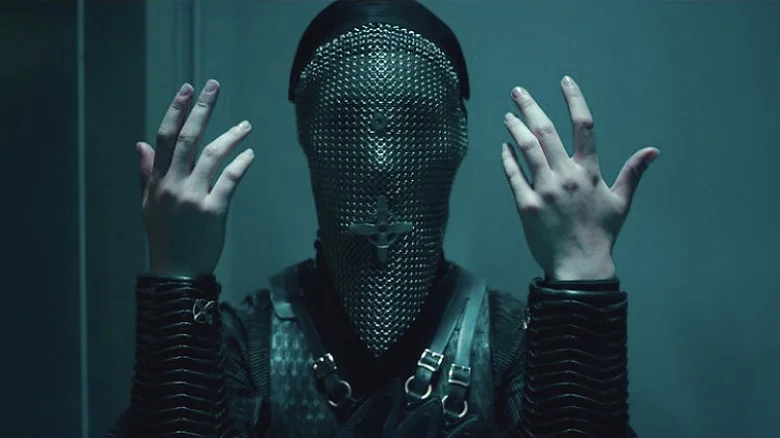
“Warrior Nun,” filled with references, ranging from obvious (such as the episode titles) to more subtle ones. Character names fall into both categories, and while some are self-explanatory (such as Padre Pious Welter), others require closer examination. One such character is Beatrice (played by Kristina Tonteri-Young), a linguistically-gifted and fierce fighter whose name offers numerous potential inspirations.
There is Beatrice of England, who shares similarities with our Beatrice as the daughter of British VIPs. Another potential source is Beatrice Portinari, the unattainable muse of Dante. While the most apparent reference might be Saint Beatrice, the patron saint of prisoners, there is something about Beatrice as a specifically Christian saint that feels a bit too obvious. Instead, we should consider two other Beatrices: Beatrice of Provence, the home of the mythical and fearsome Tarasque (which may sound familiar), and the medieval trobairitz or female troubadour, Bieiris de Romans, also known as Beatriz or Countess Beatrice.
Bieiris de Romans’ “Na Maria, pretz e fina valors” has been a topic of debate among scholars for many years due to its overtly romantic language. Despite being written by a woman about another woman, some scholars reject it as an expression of same-sex desire. Some have even tried to deny its female authorship, while others argue that its language is anything but romantic, as per UNC Chapel Hill’s “Romance Notes.” However, the plot of “Na Maria” seems to connect with Beatrice’s love for Ava, and it feels like the missing piece of the puzzle. In the poem, the speaker pleads with Maria not to give her love to a deceitful suitor. As Ava has already given everything, including her life, to a mission that becomes more questionable with each passing episode, the idea of devoting oneself to something “false” seems ready to play out in Season 3.
Beatrice’s mandatory un-retirement in Season 3 of Warrior Nun
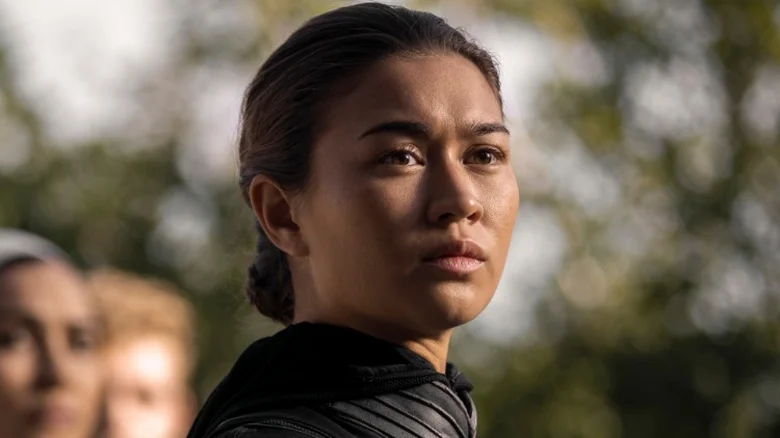
It’s highly likely that in Season 3, Beatrice’s journey of self-discovery would be interrupted by an obligatory return to duty. This could be triggered by various events such as a sudden rise in demon activity, a message from Ava’s afterlife, an encounter with the Tarask, or news of her sisters and humanity in peril. Although the show typically uses a voiceover recap by Ava to begin new seasons, Season 3 may begin with perspectives from both Beatrice and Lilith, offering insight into their individual experiences.
Lilith, the enigmatic character who has oscillated between being an antagonist and a protagonist in Seasons 1 and 2, presents several possible storylines for Season 3. Her name and the narrative surrounding her thus far provide clues to the directions her character arc could take. The idea of Lilith as Adam’s first wife has been a topic of debate for a long time.
She is referred to as the “first” woman in Genesis and is implied to be Adam’s equal, but the second woman, Eve, is named and made from Adam’s rib, leading to the interpretation that she is subservient to him. To reconcile this contradiction, some early church leaders gave the unnamed woman the name Lilith and portrayed her as too independent, resulting in her being cast out or leaving the garden. This interpretation and its implications will undoubtedly influence Lilith’s journey in “Warrior Nun.”
Lilith knows something we don’t know
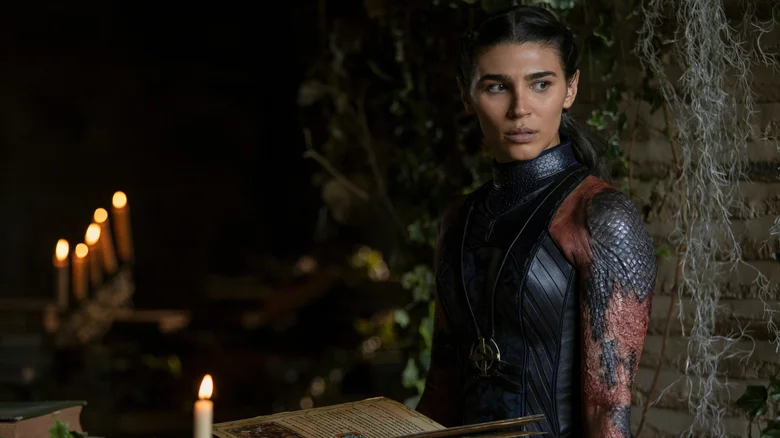
The different interpretations of Lilith’s story in Genesis, including her being Adam’s first wife or a proto-wife cast out of the garden due to her independence, are heavily debated by scholars. While some suggest that the two different women mentioned in the story are the result of different scribes telling the same story, others argue that Lilith has evolved into a feminist icon in modern times, as seen in the Lilith Fair music festival. With this in mind, let’s explore how Lilith’s past and name might shape her character in Season 3 of “Warrior Nun”.
The character of Lilith in “Warrior Nun” is explored in terms of her journey from outcast to feminist icon. In season 3, it is suggested that Lilith will continue to be misunderstood and rejected for her refusal to conform to traditional roles. The show’s depiction of female warriors fighting for a male god adds to the ambiguity of their mission. When Adriel (William Miller) asks Lilith what happened to her on the other side, she says she doesn’t remember, but her body language says otherwise, thus Lilith is hinted to possess secret knowledge related to the series’ overarching plot.
What would Lillth do in Warrior Nun Season 3, though?
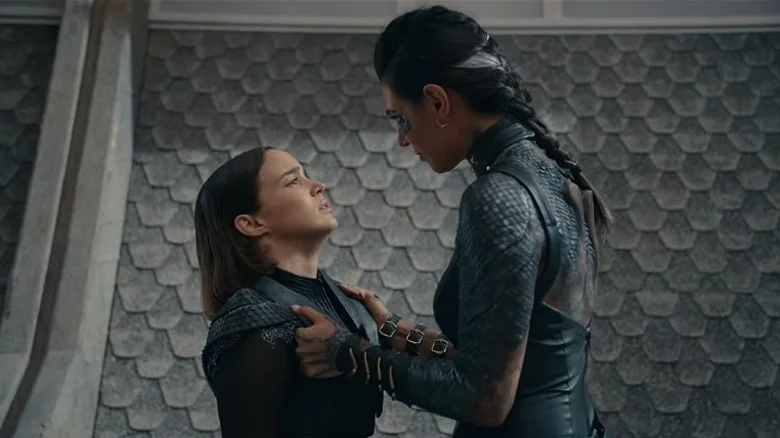
“Adriel likes you,” Lilith tells Ava in one key moment of Season 2, adding, “that’s why he hasn’t killed you yet.” The statement that Adriel didn’t try to kill Ava in “Warrior Nun” Season 2 is incorrect. Lilith is the one who tries to protect Ava and stops Adriel from killing her. Lilith also informs Beatrice about the upcoming holy war, suggesting that she may have obtained secret knowledge during her time in the other realm.
Lilith’s actions throughout the series suggest that she has good intentions and is willing to anger those she loves to do what she believes is right. She desires to break free from the control of religious institutions and sees truth and knowledge as sacred. Lilith’s actions and beliefs may have been fueled by the desire to provide another option for the oppressed. However, Lilith is not the only character with hidden knowledge.
Semantics return in Season 3 of Warrior Nun
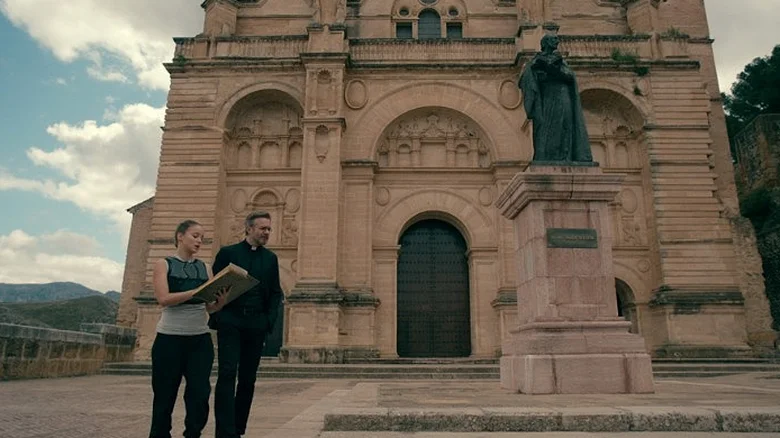
It’s possible that Yasmine Amunet, with her Egyptian mother-goddess last name meaning “the hidden one,” is the informant who betrayed the OCS to Adriel, given her frequent interference in their affairs despite her charming but seemingly fake incompetence. However, she also exhibits a genuine concern for her newfound family, and her motives, like those of many enigmatic characters in the show, are likely multifaceted and possibly even justified. In any case, it’s unlikely that her intentions are intentionally malicious.
One intriguing character in “Warrior Nun” is the first warrior nun, Areala of Cordoba (Guiomar Alonso), whose flashbacks are constantly evolving and unreliable. Despite their manipulation, her story reveals much about her character and past, touching on a central theme of the show: the blurred line between truth and politically-driven revisionism. Areala’s narrative is at the crux of this tension, offering clues to significant plot developments in Season 3 that we unfortunately never got to see due to the show’s unjust cancellation.
Let’s start from the beginning. The flashbacks featuring Areala in “Warrior Nun” are just the tip of the iceberg, given the show’s overall tone and subtext. The semantics at play in Ava’s interpretation of Areala’s history are telling: she fought “in his name” (with emphasis on the “his”), but the identity of this mysterious figure and the cause for which Areala fought remain unclear. Given the stark contrast between the reality of the crusades and the toxic mythology surrounding them, it’s unlikely that the show’s ancestral hero figure would have blindly accepted Pope Urban II’s hateful propaganda or supported politically-motivated violence.
And Areala returns, as well
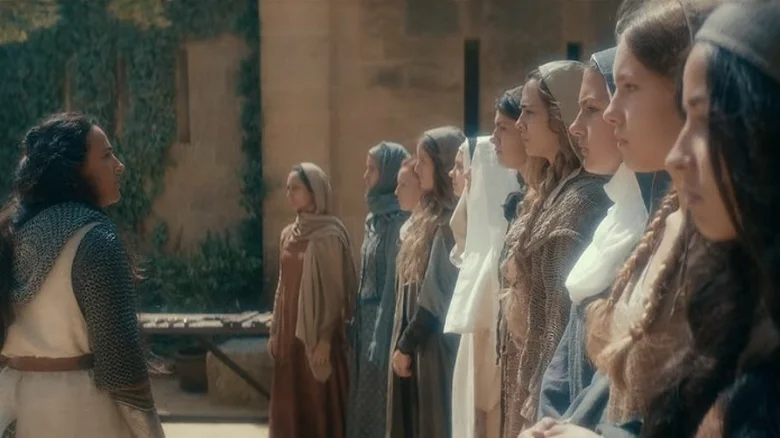
A crucial detail in the first Areala flashback is that she and her knights approach Almodóvar Castle, situated near Córdoba. This suggests that Areala’s narrative is rooted not in the crusades in Jerusalem, but in the intricate and diverse history of the Iberian Peninsula during the 11th century.
It would be impossible to summarize the intricacies of centuries-long political and cultural conflicts and collaborations, but one thing is clear: if Areala had grown up in or near Córdoba, she would have witnessed firsthand the effects of religious tolerance on the once-prosperous region (as noted by The Met Museum), as well as its eventual decline due to factors like political infighting, power struggles within the same religion, and widespread religious persecution (as reported by the BBC). This period was marked by a complex tug-of-war that led to the debatable concept of Convivencia, or the practical coexistence of Jews, Muslims, and Christians, being replaced by a violent alternative: destructive intolerance that would plague the region for centuries to come.
Although Areala may have been a Christian, like Saint Aura of Córdoba/Seville before her, there’s also a possibility that she could have been Muslim, Jewish, or a Christian from Andalusia who faced persecution from “reformist” Christians (as discussed in “The Ornament of the World”). The fact that the women she gathers in the flashback are dressed in a range of medieval religious attire suggests that it wasn’t a coincidence in costume design. It’s possible that Areala formed the order not to fight for any specific religion, but to promote the peaceful coexistence of many.
Reya’s roots reveal much in Season 3 of Warrior Nun
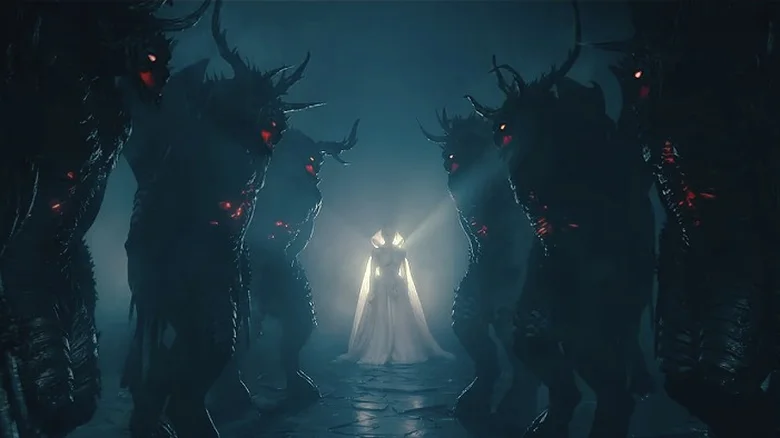
The introduction of Reya (Andrea Tivadar) in “Warrior Nun” brings forth new questions and possibilities. By examining the themes the series has established thus far and playing the Name Game one last time, we can begin to speculate on what Reya might symbolize.
Reya’s name is once again a source of inspiration with a range of potential connections, including Greek mythology’s Rhea, the mother of gods; Asherah, the consort of the ancient West Semitic god El, and another mother of gods; and the Scandinavian goddess Freyja. What’s interesting is that these various myths and interpretations of these deities speak to the show’s theme of interpretation. For instance, some scholars believe Asherah was once worshipped as Yahweh’s consort or as a feminine aspect of god’s genderless/transcending nature. Additionally, Rhea had a group of demonic-looking creatures called The Kouretes, who protected her son Zeus from his cannibalistic father Kronos after Rhea hid the infant in a cave on Mount Ida, which bears similarities to Reya’s protection of Michael, played by Jack Mullarkey.
This helps Warrior Nun Season 3 maintain its ethos
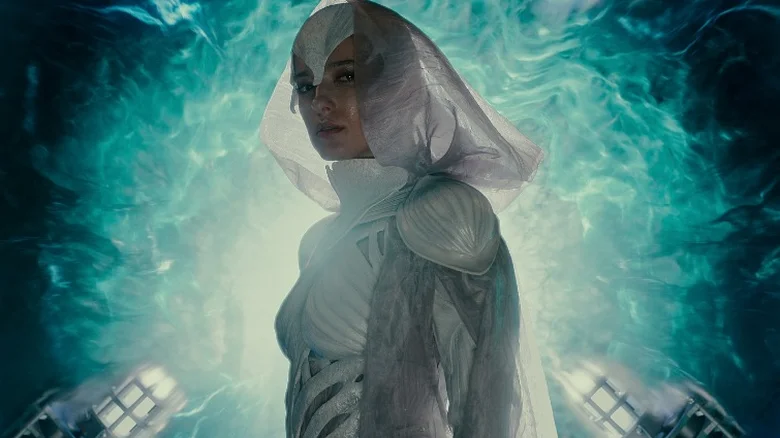
Although it’s not implausible to go from a stolen necklace to a stolen halo, we’re not proposing that “Warrior Nun” Season 3 would become a “Ragnarok” clone or that it would rework any particular iteration of these myths. Nevertheless, these mother-goddess associations seem less like a haphazard collection of Joseph Campbell’s ideas and more like a deliberate, collective allusion to an eventual revelation:
If Reya is indeed a mother-god with unlimited power, as Michael suggests, then she could be the inadvertent origin of the gods and the one God at the heart of both polytheistic belief systems and Abrahamic religions. We understand that her realm is not the heaven or afterlife of any religion, and that Adriel only uses terms like “angel” and “prophet” because they are familiar to humans. It’s possible that numerous beings from Reya’s realm have entered our world at various times and places throughout human history, leading them to be worshipped as deities for obvious reasons.
Crucially, this would not invalidate the notion that these beings continued to exist and fulfill their assumed roles. As a result, such a revelation would enable “Warrior Nun” to avoid ridiculing, rejecting, or conflicting with anyone’s beliefs (because it would, if anything, validate their respective origins), while still condemning the many ways in which religion can be manipulated in our world to dominate and oppress others and justify hatred, as it has consistently done.
Death and revelation in Season 3 of Warrior Nun
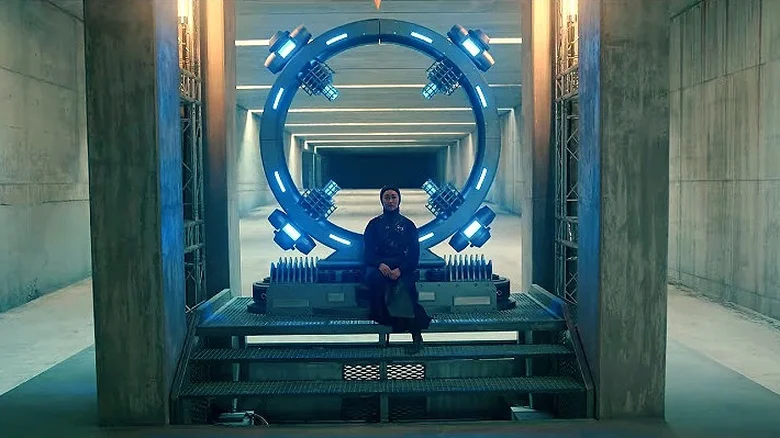
In Season 3 of “Warrior Nun,” Beatrice would likely struggle to reconcile her faith with the events of Season 2, serving as a representation of the series’ own struggle to reconcile science with its characters’ beliefs. The show has been criticized for its ambiguity, with some viewing it as either unaware that it’s not answering the questions it poses or afraid to provide a definitive answer. However, this criticism is not often leveled at alien invasion stories, despite the fact that they, like “Warrior Nun,” ask similar questions about humanity without providing answers. When viewed through the lens of an alien invasion story, the ultimate goal of “Warrior Nun” becomes clearer.
Regrettably for fans of the “Avatrice” romance, Ava’s demise is necessary (for real, not just as a cliffhanger), not because happy endings make for dull TV, but because it would spur Beatrice to reinstate the OCS to its intended mission: opposing those who exploit faith and information as tools to achieve dominance (including the demon puppeteers).
The idea of “resolution” in “Warrior Nun” may not satisfy those who expect neat answers to every plot point, but it could offer a more significant message: that truth is not a finite resource, nor does it conflict with any particular faith. The real obstacle to intellectual and spiritual liberation is the way in which humans have exploited these things for their own gain.
Ultimately, the show’s message is simple: “Be free,” as Beatrice tells Ava at the end of Season 2. This sentiment applies not only to the characters but also to humanity as a whole.




